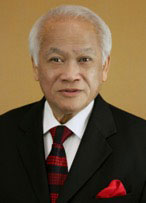(This is Part 39 of Dr. Pagtakhan’s column Medisina at Politika in Pilipino Express.)
[Editor’s Note: In February 2020, CFNet started publishing Dr. Rey Pagtakhan’s Commentary on COVID-19. Now on Part 39 of his running commentary, Dr. Pagtakhan – a retired lung specialist and former Member of Parliament – has kept the Filipino community and other CFNet readers continually informed about 1) the pandemic and its impact, 2) the scientific advances on drugs and vaccines, 3) the effectiveness of public health measures, including mass vaccination, 4) the danger of misinformation and disinformation, and 5) sound public health policy.]
Temporary foreign workers (TFW) in Canada’s agricultural sector have been left vulnerable to COVID-19 during the past two years. Thus summarized Auditor General Karen Hogan in her news release when she presented to Canada’s Parliament on December 9 her Report 13, Health and Safety of Agricultural Temporary Foreign Workers in Canada During the COVID-19 Pandemic:
“Overall, we found that the Employment and Social Development Canada’s inspections—whether they targeted quarantine, outbreaks or basic living conditions—provided little assurance that the health and safety of temporary foreign workers were protected during the 2020 and 2021 growing seasons.”
This revelation reflects a lamentable breach of federal duty and poses a threat to human security. Hence, this Commentary is to 1) brief readers on the TFW Program for a better understanding and appreciation of its significance, governance, administration and human security dimension; 2) discuss the impact of the pandemic on the Program; 3) outline the appointment, tenure, independence and mandate of the Auditor General (AG) and the importance of performance audit; and 4) share my observations following my review of the full AG Report 13 as tabled in the House of Commons. All these are considered with the end in view of alerting the public on the most recent AG report on TFW in the midst of the pandemic, and thereby through civic engagement with governments, help strengthen human security to the ultimate benefits of TFWs, the agricultural sector, and the nation.
Understanding the TFW Program and its human security dimension
Start, Scope and Significance: For half a century and a decade, thousands and thousands of TFWs have been coming seasonally to Canada to meet labour-force shortage in Canada’s farms and horticultural operations. Their arrival times are variable: some begin in January while most during the spring and summer. In 2019, some 54,000 TFWs and 4,700 agricultural employers matched. From March 2020 to June 2021, over 79,000 workers participated in the Program. The benefits have been reciprocal: Canadian agricultural employers are able to maximize their productivity while workers remit their earnings to families back in their distant homes. In the process, employers and workers have helped support the security of Canada’s food system – a situation that at once gives the TFW program its human security dimension.
Governance, Administration and Integrity: Participation in the program requires employers to meet legal requirements. While the Immigration and Refugee Protection Act and its enabling Regulations govern the TFW Program, it is administered by Employment and Social Development Canada (ESDC), in partnership with other federal departments and provincial governments, which set labor and safety standards, and in cooperation with relevant non-governmental workers’ groups. ESDC conducts inspections to 1) verify employers’ compliance with requirements and 2) determine consequences for violators.
Basics of Human Security and the TFW Program: Four elements of security – economic, food, health and safety – encompass the basics of human security that relate to the TFW Program, and reflect the commonly cherished human aspirations as understood by the U.N. Development Programme, namely, food for the family, adequate shelter, good health, and safety. This concept assumes relevance to one of the AG’s recommendations that bears on the promise of the U.N. sustainable development goals dealing with migrant workers (See AG further recommends).
Impact of Canada’s Response to COVID-19 on the TFW Program
Governments around the world, Canada included, had to promptly invoke more emergency powers and adopt more restrictive public health measures under the Quarantine Act when the World Health Organization (WHO) officially declared on March 12, 2020 the COVID-19 pandemic. In fact, Canada as other countries had already begun taking restrictive travel measures as soon as the WHO declared earlier on January 30 that the then emerging new contagious coronavirus respiratory disease is a global health emergency. One emergency order announced in mid March 2020 banned majority of foreign nationals from entering Canada and another emergency order given near the end of the month required persons entering Canada to quarantine for 14 days.
TFWs already holding valid work permits were exempted and allowed entry in recognition of their pivotal role securing Canada’s food system – a clear appreciation of their human security dimension. Thus, the largest pool of agricultural TFWs was able to arrive for the 2020 growing season. The travel and 14-day quarantine restrictions continued to apply to all arrivals, including testing requirements on arrival. These were still operative at the conclusion of the AG’s audit in June 2021.
Note that earlier in April 2020, Canada amended the Immigration and Refugee Protection Regulations and added more responsibilities on employers to help protect workers from COVID-19 and prevent its spread.
The Auditor General and the AG Report
The Auditor General of Canada is appointed as an Officer of Canada’s Parliament by the federal cabinet on advice of the House of Commons and Senate; serves for a fixed, non-renewable term of 10 years; may only be removed for cause and not at pleasure; is mandated by law to independently and objectively assess how well the Government of Canada is managing its activities, responsibilities, and resources; and reports directly to Parliament. The AG evaluates government performance, not policy choices. This is a distinctive principle in our parliamentary democracy.
The AG Report 13 tabled in Parliament is the entirety of the performance audit conducted on the Health and Safety of Agricultural Temporary Foreign Workers in Canada During the COVID-19 Pandemic. Designed to contribute to “an ethical and effective public service and a government that is accountable to Parliament and Canadians,” this particular audit report has identified key problems and has made a number of recommendations to address them.
Findings of Concern: Three findings of concern are summed up below by the federal auditor, namely:
- “Inspections provided little assurance of protection for the health and safety of agricultural TFWs;
- ESDC did not address longstanding concerns about TFWs’ accommodations; and
- ESDC did little to meet the commitments to improve living conditions for agricultural TFWs that it had made in previous years.”
To briefly elaborate, consider the following key facts and figures:
- From March 2020 to June 2021, 79,255 workers arrived to work in Canada’s agricultural sector.
- In 2020, ESDC assessed almost all employers as compliant with the COVID-19 regulatory requirements yet about 73% of the quarantine inspections miserably failed to validate compliance.
- In the following year, this problem rose to 88% of the quarantine inspections done even though ESDC received $16.2 million the year before to help improve its inspections.
The foregoing findings reflect a serious breach of the government’s duty to ensure the health and the safety of these valued essential workers had been protected these past two years. They also reflect little regard for regulatory requirements and insensitivity to health and safety standards. Thus, the vicious cycle of non-compliance and risks that have pervaded the system.
AG’s Recommendations: Specifically, the AG recommends ESDC “should, without delay”:
- re-examine its system to ensure inspections are properly assigned within established workload capacity and completed in a timely manner;
- train and support its inspectors to collect sufficient and appropriate evidence, as prescribed;
- improve its quality control system a) to monitor the progress of inspections at various stages of completion and b) to ensure timely follow-up and application of appropriate corrective actions or consequences, as prescribed; and
- expedite, in consultation with provincial, territorial and other jurisdictions, the development and implementation of minimum accommodation requirements as an eligibility condition of this federal program.
The AG further recommends that EDC identifies the TFW Program as a departmental program tracked to demonstrate progress to support Canada’s effort to advance the United Nations’ development goal No. 3 (Good health and well being), particularly Target 8.8 which states: “Protect labour rights and promote safe and secure working environments for all workers, including migrant workers, in particular women migrants, and those in precarious employment.” (See Basics of human security).
Adoption of the above-mentioned recommendations would help 1) affirm the seriousness of employer compliance with specific immigration regulations; 2) restore trust in the Department’s commitment to better the living conditions for workers; and 3) validate the relevance of the TFW Program to Target 8.8 of the U.N.sustainable development goal: “Protect labour rights and promote safe and secure working environments for all workers, including migrant workers, in particular, women migrants, and those in precarious employment.” (See Basics of human security ).
Summation
This Commentary has made the case that the TFW Program is a vital human security issue. Thus, it is lamentable that the Program was left vulnerable to COVID-19 during the past two years by the absence of timely, quality and rigorous quarantine and outbreaks inspections.
The urgent call by the Auditor General to Employment and Social Development Canada (ESDC) to move “without delay” on the recommendations for action cannot be overemphasized. Time is of the essence since Omicron – the newest COVID-19 variant of concern – could be devastating in magnitude with its speed of transmissibility as Public Health Agency of Canada has recently projected – as much as 10,000 new cases daily could occur as early as mid-January in the new year if Omicron assumes dominance over the Delta.
The gravity of the issue and the necessity to have in place a rigorous inspection program are best conveyed by the Auditor General in her statement that reflects a deep sense of concern: “It’s long past time to fix the situation for temporary foreign workers in Canada.”














